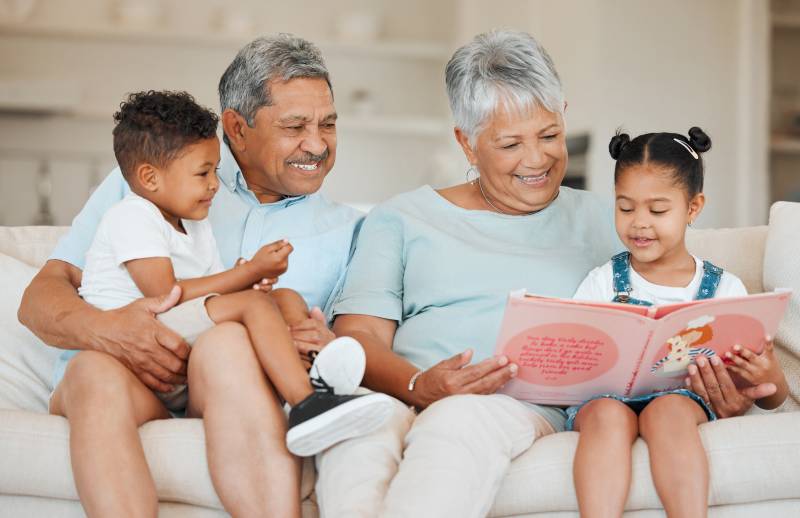What might happen if I bite my grandmother in the butt? This, I imagine, is what my four-year-old son was pondering the afternoon my mother took over while I enjoyed a nourishing weekend away with friends. Grandma would not be happy, it turns out, but my son and his siblings would find it riotous. I learned about the bite later. Rather than spoil my rare weekend off, my mother sheepishly confessed to the incident only after I pressed her, and even then dismissed it as trivial.
My mother seemed to have understood intuitively the kind of wisdom dispensed by parenting experts. In his book, You and Your Adult Child: How to Grow Together in Challenging Times, psychology professor Laurence Steinberg writes, “being a good grandparent mainly involves making life easier for your child and their partner.” Slate parenting columnist and podcast host Jamilah Lemieux echoed that advice when she told me that the grandparents’ principal role is to stand by their kids. “Parents need to feel supported by their own parents,” she said.
This all makes sense. But many grandparents – who weren’t born yesterday, after all, and know a thing or two about raising children – can find it hard to stifle themselves when their own grown kids won’t do something about that backtalk! A national poll of about 2,000 parents with kids under 18 found that the most common sources of disagreement with grandparents concerned discipline, diet and screen time.
A recent Pew Research Center study on parents’ attitudes towards their upbringings suggests that conflict between parents and grandparents might be unavoidable. Of the 3,700 parents surveyed, 44% said they intended to raise their own kids differently from the way their parents had cared for them. (43% said they would adopt an approach similar to their own parents.) The main area in which they hoped to deviate concerned love and relationships. One mother in the survey said her parents were unaffectionate and wrote, “I am trying to show more love in my caregiving.”
How can mothers and fathers keep the grandparents involved with the grandkids without losing their exhausted parental minds?


